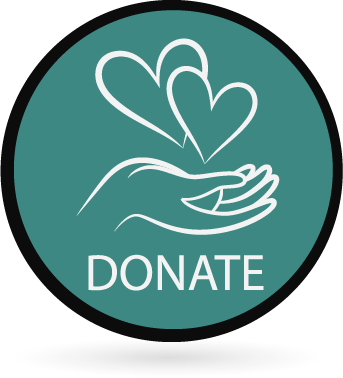Nursery School
The OPEN HOUSE nursery school provides a ‘head start’ program that strengthens Arab children’s identity and self-confidence. These qualities are essential for children in a minority culture as they grow and seek their place in the wider society. The nursery school offers a variety of stimulating activities fostering educational and social development. Every day the children sing songs, play educational games, watch videos in Arabic and Hebrew, celebrate each others’ birthdays and upcoming religious festivals, engage in physical activity in OPEN HOUSE’S backyard playground, and receive a nutritious mid-morning meal.

Arab toddlers at our day-care center learn music from Elisheva Goldstein
Educators from Ramle’s Arab school system have reported that children who enter their schools after attending our nursery school are more self-assured and socially interactive than other pupils. Sr. Bishara, headmistress of the Srs. of St. Joseph Elementary School in Ramle, reports that the children who go through our nursery school arrive in her first grade class with greater self-esteem and ability to interact with others, compared to other Arab children who have not had such preschool preparation. Mothers who place their children in the nursery school tell us that their children are happier, more secure, and better prepared to enter school. These mothers also value the opportunity to further their own careers and to provide a second income for their families.

Ramle is a mixed city between Tel Aviv and Jerusalem. It has a mixed population of 71,000, 20% of which are Arab citizens, Muslims and Christians. Before OPEN HOUSE opened its nursery school in 1991, Arab parents in Ramle had no place to send their preschoolers, unless they were prepared for them to assimilate into a Hebrew-speaking environment at such a formative age. At OPEN HOUSE, the Arab toddlers get a “head start” in their education, so that they won’t be at a disadvantage later on as members of the Arab minority within the Israeli school system.
Content of the Program
The nursery school program includes time for play, of course, and there is high-quality playground equipment in the backyard: swings, slide, sandbox, seesaw, tricycles, stationary plastic animals to “ride,” plus balls, hoops, and other games. The educational program includes arts, language exercises (in Arabic and Hebrew), number games, and activities to enhance social-interaction skills. Occasionally the children go on trips with their mothers, to places like the zoo or an amusement park. Each child is provided with a nutritious meal every day, prepared by the nursery school staff. The essential outcome of the program is that the children learn to know and respect their own cultural identity–language, holidays (Muslim and Christian), and other customs–while being exposed to people of other backgrounds, including the Jews who work at OPEN HOUSE and the hundreds of international visitors who come through the center each year.
In 1991, when Open House began to operate, we saw the need for a nursery school for Arab toddlers ages 2 and 3. This was the first nursery school for Arab children in their own language and culture in our region. Until 2006, the program used to run five days a week from 7:30am until 1:30pm for about 30 children, but when we realized that more and more mothers needed to work full time, we turned our nursery school into a Day Care Center. The Day Care Center runs six days a week until 4pm in the afternoon for those who needed this additional service.
Before their afternoon nap, the children receive an excellent, nutritious hot meal cooked in the home by our own cook. The children wake to music and after their nap, they have yogurt and fruit.

The Day Care center has 6 staff members and the parents’ fees cover about 60% of the operating costs, which include a sliding scale for the economically disadvantaged. For our continuity, we need to supplement the operating costs by donations.
Through their children, the Christian and the Muslim parents meet at Open House on a daily basis and for holiday celebrations, thus strengthening inter- communal bonds.

 Summer Camp 2024
Summer Camp 2024 Summer Camp 2023
Summer Camp 2023 Summer Camp 2022
Summer Camp 2022 Summer Camp 2021
Summer Camp 2021